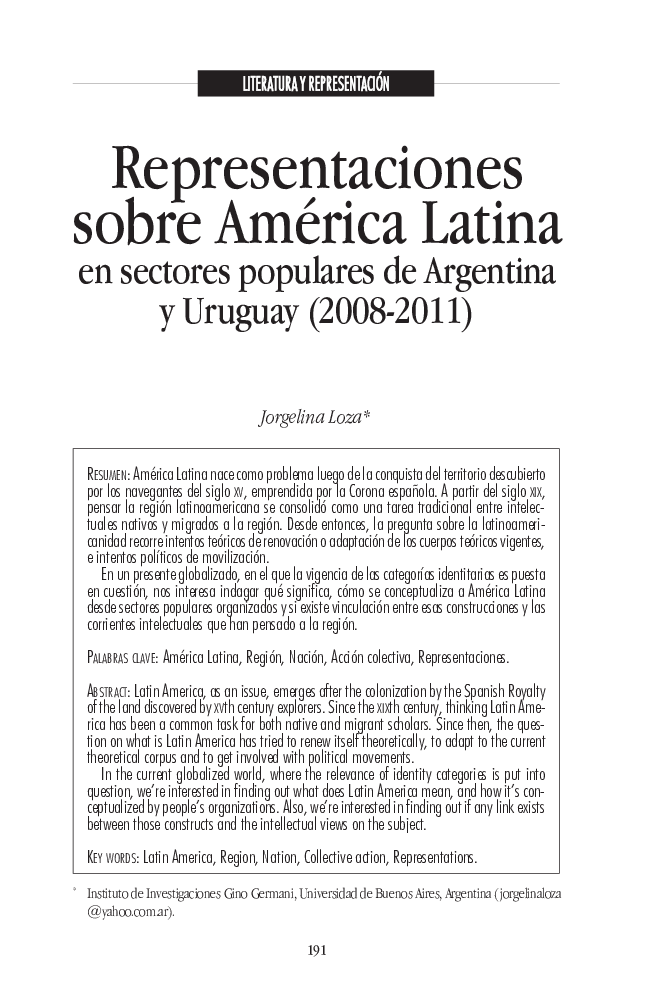| کد مقاله | کد نشریه | سال انتشار | مقاله انگلیسی | نسخه تمام متن |
|---|---|---|---|---|
| 1127417 | 1488710 | 2013 | 27 صفحه PDF | دانلود رایگان |

ResumenAmérica Latina nace como problema luego de la conquista del territorio descubierto por los navegantes del siglo xv, emprendida por la Corona española. A partir del siglo xix, pensar la región latinoamericana se consolidó como una tarea tradicional entre intelectuales nativos y migrados a la región. Desde entonces, la pregunta sobre la latinoamericanidad recorre intentos teóricos de renovación o adaptación de los cuerpos teóricos vigentes, e intentos políticos de movilización.En un presente globalizado, en el que la vigencia de las categorías identitarias es puesta en cuestión, nos interesa indagar qué significa, cómo se conceptualiza a América Latina desde sectores populares organizados y si existe vinculación entre esas construcciones y las corrientes intelectuales que han pensado a la región.
Latin America, as an issue, emerges after the colonization by the Spanish Royalty of the land discovered by xvth century explorers. Since the xixth century, thinking Latin America has been a common task for both native and migrant scholars. Since then, the question on what is Latin America has tried to renew itself theoretically, to adapt to the current theoretical corpus and to get involved with political movements.In the current globalized world, where the relevance of identity categories is put into question, we’re interested in finding out what does Latin America mean, and how it’s conceptualized by people’s organizations. Also, we’re interested in finding out if any link exists between those constructs and the intellectual views on the subject.
Journal: Latinoamérica. Revista de Estudios Latinoamericanos - Volume 56, 2013, Pages 191–217